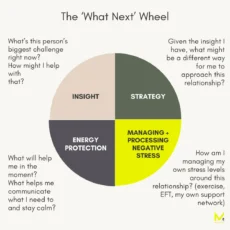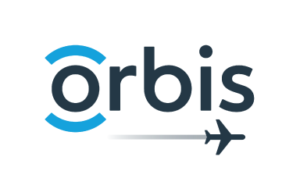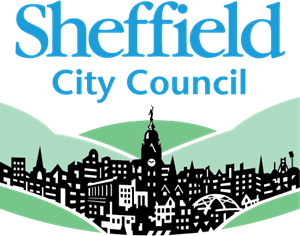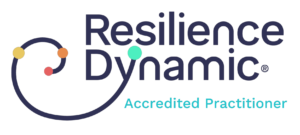Ever felt stuck in a tricky relationship and the more of the other person you see the more entrenched you become in your opinion that they are, in fact, completely barking mad/uncaring and awful/totally incompetent?
In spite of our best intentions, we have all been there. If what we see we can’t understand our brain will seek to find meaning in it, and as we can’t see in the sack of stuff that our colleagues carry around, we leap to conclusions about why people are the way they are. Usually that they are either uncaring or incompetent (or both.)
If you recognise that this stuckness is not helping and you’d like to feel a bit better about your interactions with a certain someone, then you might find my What Next Wheel on Work Relationships useful:
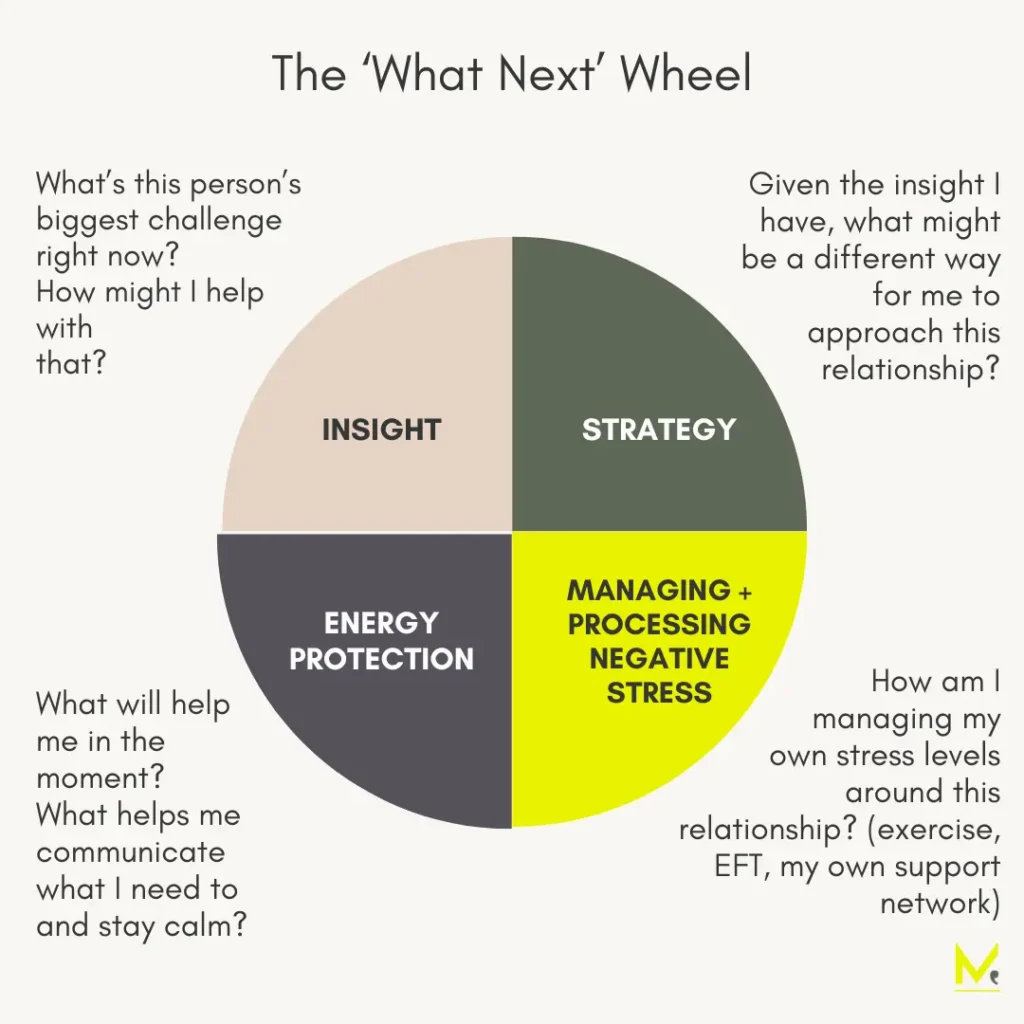
You can start at any point in this wheel, but I’ll share what feels like a logical order. This is not something I share overtly with clients but it’s often in my head, and I’m often asking ‘where does this person need to begin as we unstick this stuckness?’
01. What new insight can you find about this person?
What we see is other people’s behaviour. What we don’t see, and what’s not always appropriate for us to even know about, is what’s going on inside of them, or in their life, that’s driving that behaviour. The more insight we have into – what’s going on for that person, what is challenging them at the moment, where are they getting pressure at work, what energises them? – the easier it will be for us to communicate with them. Try going and sitting somewhere new (in your office, at home, or go for a walk) and ask yourself ‘What is life like at work for this person right now? What are their challenges? What is keeping them up at night?’ If you haven’t the faintest idea, how might you find out?
02. A strategy.
Sometimes we’re on a project team with someone we perceive as tricky, sometimes we see them in management meetings, sometimes we are their line manager. All the above require a different strategy – how am I going to approach my conversations. What’s the most important thing here? Given my insights, how might I go about things?
What insights you came up with will help you here. For example if you observe that this person is incredibly busy and seems stressed, your strategy might be to keep comms to a minimum and when you do communicate keep it brief and to the point.
Or your strategy might be to ask ‘What can I help with right now as things seem busy over where you are?’
Both these elements of the wheel fall into the ‘thinking’ half of my approach. You access them mostly using your brain.
The next half of the wheel requires you to connect with your feelings about the present, and past, situation. Perhaps something we don’t give ourselves permission to do as readily:
03. Energy and stress levels.
I don’t know about you but when I’m tired, or stressed, I have far less patience for nonsense and far less in the tank to deal with folk I perceive as tricky in a calm and solution-focused way. If I don’t proactively refuel my tank, this impacts on my relationships. A perfect example of this is having a draining day then coming home and snapping at your family about the shoes all over the hall floor and an overflowing recycling bin (just me?)
No one can avoid all stress, believe me I spent years trying, but we can take steps to process it, and to refuel our tank so we have enough energy for the harder conversations.
In my coaching work this might involve looking at the pent up stress from navigating a tricky relationship and moving through some of that – voicing it in a safe space, considering letting some of that go to make space for whatever you want more of. Calm? Lightness? Ease?
What helps you when you’re feeling stressed? Going out for a run or a swim? Grabbing a take out and catching up on your favourite box set? Seeing a trusted friend?
04. Protection.
This is the ‘in the moment feeling good and staying that way’ as you enter the meeting – it might be a mix of EFT, breath work, visualisation, confidence, a plan for when you’re provoked. The strategy part applied to our emotions. A way of harnessing your feelings to allow you to do a great job, rather than get in your own way, clam up, feel manipulated or any of the other possible scenarios.
As a coach I might have 10 clients in a row all sharing work relationship frustrations and how I partner with each client, so they leave our conversation feeling ready and resourceful, will look different for each human.
Partly because we often find someone else tricky because of the buttons inside us which they are pushing. And we each have different coloured buttons.
Which part of the wheel would you start in?




